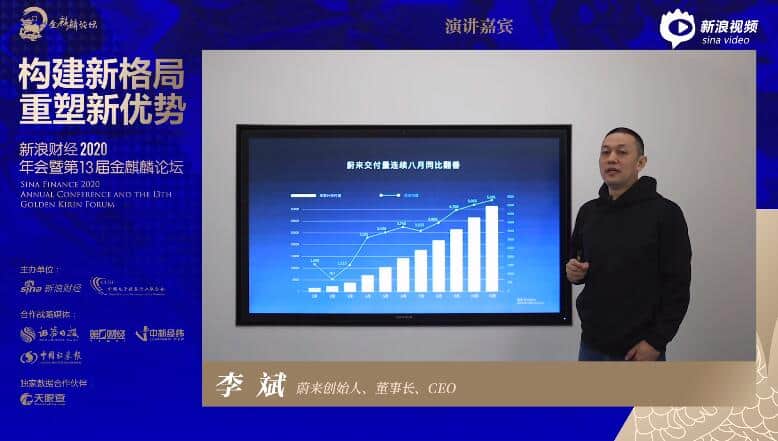Automotive brands around the world are basically looking for supply chains in China, including Tesla, Toyota, and Volkswagen, which is a huge advantage for local brands, William Li Bin said.

The competitiveness of China's automotive industry chain is very strong, and all the world's automotive brands, including Tesla, Toyota and Volkswagen, are looking for supply chains in China, which is a great advantage for local companies, said William Li Bin, founder, chairman and CEO of Chinese EV maker Nio.
The 13th Golden Kirin Forum was held in Beijing on December 10, and Li said this in his speech.
He mentioned that from the perspective of the global supply chain, China produced 25.72 million vehicles last year, ranking first in the world for many years in a row, about 30 to 40 percent more than the United States.
"The competitiveness of China's automotive industry chain is very strong, with its volume, scale, and industrial chain foundation," Li said, adding that "all the world's car brands, including Tesla, Toyota, and Volkswagen, basically look for supply chains in China. This chain in the Chinese auto industry has had a profound impact on the entire global auto industry."
At the same time, Li pointed out that another advantage of Chinese companies is automated driving. He argues that automated driving relies on Internet technology, artificial intelligence technology, big data and basic communication technology, and that China is already one of the world's leading countries in these areas.
"Of course the US is still the leader in this area, but China is very close. China has a lot of talent and startups in the field of automated driving, and the application scenarios in China are even richer," Li said.
"Because autopilot is ultimately a technology for application, I think there is a huge opportunity for Chinese companies in this area," he added.
Li said that when analyzing the future of the entire auto industry, the three words "smart," "electric" and "car" should be used. In all three areas, China has the world's leading foundation, so Chinese companies have a great opportunity.
In Li's view, smart electric vehicles are the future of the automotive industry. The core of intelligence in smart electric vehicles is automatic driving.
"In terms of electrification, China already has the world's largest battery production company (CATL). In terms of automobiles, there is no doubt that China is already one of the largest producers and sellers of cars in the world," Li said.
"Looking at the future from today's point of time, I think it's important to grasp the two keywords of automated driving and automobiles, which are an opportunity for Chinese companies," he said.
Li pointed out that "autopilot" makes today's cars different from previous ones, and that "autopilot" relies more on localized infrastructure, localized data, and localized content and application scenarios.
Under such a premise, Li argues that it is difficult for cars to be universally applicable like before and that they must be adapted to local scenarios.
"Under such a big background, Chinese companies have a great opportunity to participate in the global competition," Li said.